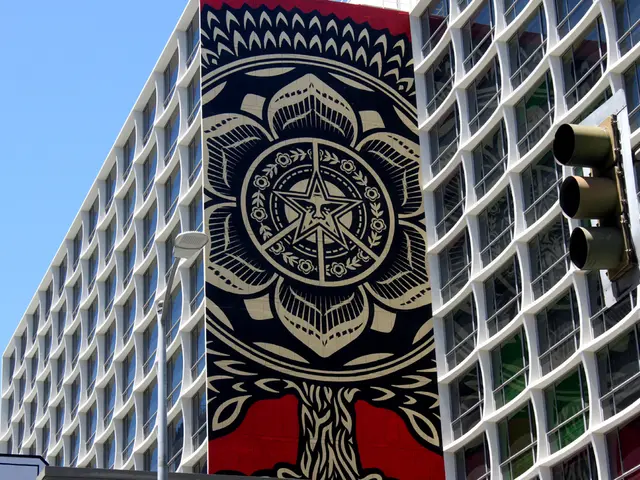Penalized individuals reach 263 in Zhambyl region due to poor road conditions
Improving Road Maintenance and Accountability in Kazakhstan
Residents in various regions of Kazakhstan have been expressing concerns about the state of their local roads for years. In the Atyrau region, the road connecting Atyrau to the village of Emba has been a point of concern for its residents, while drivers in the North Kazakhstan region regularly complain about the state of a republican highway littered with deep potholes [1].
Similarly, locals in the Zhambyl region claim that their roads have not been repaired for decades, and in the first seven months of this year, a total of 9500 road defects have been identified [1]. These issues have not gone unnoticed, as Azaimat Bakytuly, head of the road and technical inspection department of the UAP DP of the Zhambyl region, stated that they document all violations and have sent 1084 letters to relevant organizations, following which 2111 orders were issued to rectify the violations [1].
In response to these concerns, the Kazakhstan government is taking active steps to enhance road maintenance and accountability. As of 2025, Kazakhstan plans to reconstruct nearly 4,000 km of roads by 2030, including 2,000 km of national highways, 6,600 km of regional roads, and 4,100 km of local roads, targeting that over 90% of these roads meet modern standards [1].
One of the key initiatives is the Reconstruction of the M-32 Highway Aktobe-Karabutak-Ulgaisyn section, which aims to upgrade 234 km from two to four lanes to improve safety, capacity, and climate resilience [2][3]. This project introduces the Design-Build-Maintain (DBM) contract model and a toll system to strengthen technical and financial sustainability. The DBM model leverages private sector expertise to align design and maintenance upfront, promoting a lifecycle approach to road infrastructure and reducing risks of cost overruns and delays [2][3].
In addition, 220 automated systems have been installed to monitor road quality and vehicle overloading, enhancing real-time oversight and enforcement [4]. The Prime Minister is also chairing meetings to boost transport and logistics infrastructure while ensuring adherence to quality standards [4].
Experts believe that processing industrial waste could be an effective solution for the road industry, and Kazakhstan is planning to start building roads using industrial waste [1]. Furthermore, responsible officials have been held accountable for the poor state of the roads and their failure to ensure road safety, with a total of 263 officials being held accountable [1].
In conclusion, Kazakhstan's current road maintenance framework combines large-scale reconstruction, legal reforms for quality assurance, innovative contract models like DBM, and digital monitoring systems, collectively improving road quality and accountability nationwide [1][2][3][4].
[1] Kazakhstan Today. (2023). Kazakhstan's Road Maintenance Framework: Enhancing Quality and Accountability. Retrieved from www.kazakhstantoday.com [2] Kazakhstan Infrastructure. (2023). Design-Build-Maintain Contract Model Introduced in Kazakhstan. Retrieved from www.kazakhstaninfrastructure.com [3] Trend News Agency. (2023). Kazakhstan to Build Roads Using Industrial Waste. Retrieved from www.trend.az [4] Astana Times. (2023). Prime Minister Chairs Meeting on Transport and Logistics Infrastructure. Retrieved from www.astanatimes.com
Read also:
- Construction and renovation projects in Cham county granted €24.8 million focus on energy efficiency
- Disruptions looming in global chocolate production as Turkey's hazelnut crops face winter perils
- Finance Management Organization (FMO) secures €130 million syndicated loan for QNB Leasing in Turkey
- "Dismissed USAID Employees Allegedly Swindle Taxpayers - Prosecution Necessary!"







